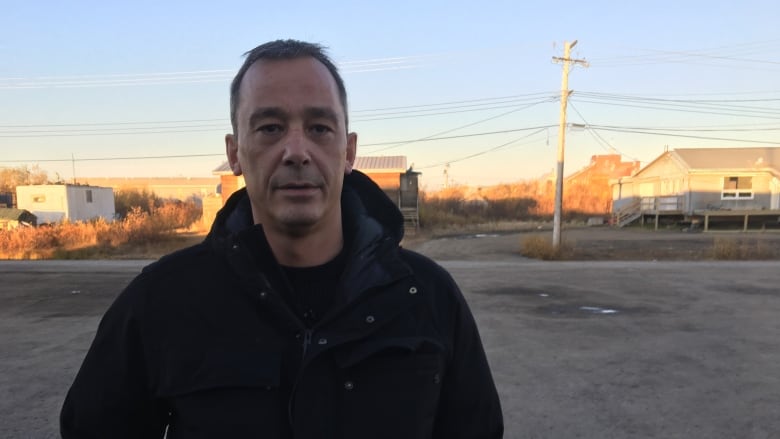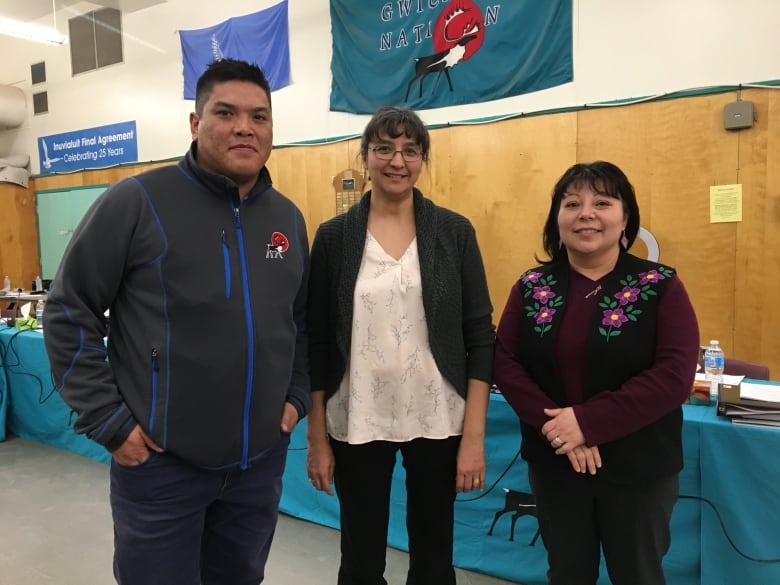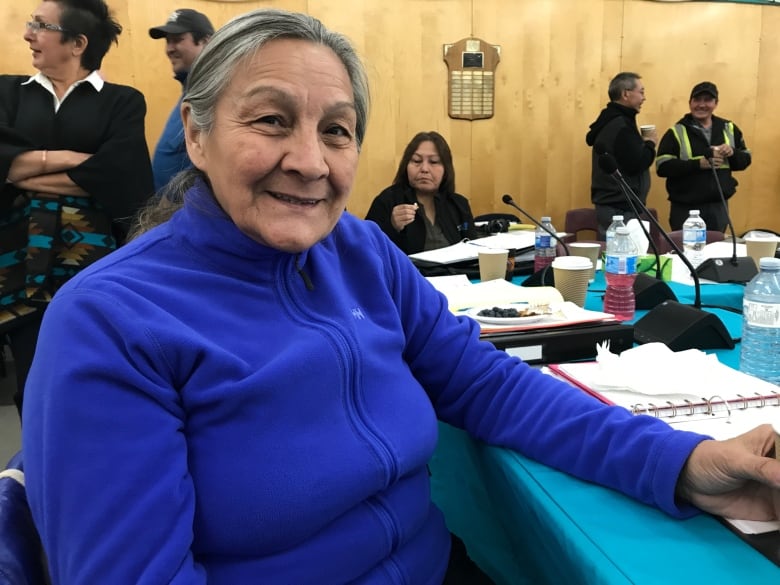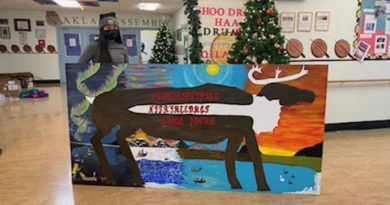Gwich’in council in Arctic Canada strikes out on its own self-government negotiations

The Gwich’in Tribal Council is changing its approach to ongoing self-government negotiations with the federal and Northwest Territories governments.
The council represents land claim corporations in Inuvik, Fort McPherson, Aklavik and Tsiigehtchic in the Northwest Territories (north-central Canada). It has been negotiating on behalf of all four communities for more than 20 years, beginning shortly after the Gwich’in signed a comprehensive land claim agreement in 1992.
The Nihtat Gwich’in Council, which represents Inuvik members, confirmed its decision to start its own negotiations separate from the Gwich’in Tribal Council at a special assembly on self-government in Aklavik on Friday.
Meanwhile, councils from Fort McPherson, Aklavik and Tsiigehtchic decided to continue working within the Gwich’in Tribal Council, though tribal council communications director Tony Devlin confirmed that the communities “will have an equal part” in the negotiations, and will all have a representative at the negotiating table.
“This brings clarity to all the communities on their role within self-government. It needs to be community driven,” said Jordan Peterson, the Gwich’in Tribal Council’s vice president.
“This gives the communities authority on self-government, we’re taking a collaborative, community approach on how we move forward,” he said.

The three remaining communities also voted to give more decision-making power to local land claim corporations during those negotiations. To help do that, they called on the federal government to increase spending on the corporations to $4.4 million per year, Peterson explained.
“We sent a very strong signal to Canada that we have insufficient funding for self-government, we need adequate funding to make sure communities play a more robust role within self-government [negotiations],” he said.
Self-government agreements set out how Indigenous communities will take over responsibilities currently under the jurisdiction of the federal or territorial governments.
Those negotiations are ongoing in several communities in the Northwest Territories, notably in the Sahtu region, while others, like Deline, N.W.T., and Old Crow, Yukon, have already reached agreements.
‘It’s what the people want’
During the meeting, Grace Blake, a Tsiigehtchic delegate, spoke about the need for more community control over self-government negotiations.
In Tsiigehtchic, many government services like policing and health-care are not actually based in the community on a full-time basis, she said. Instead, doctors, nurses and RCMP (federal police) officers visit the community every few weeks and then return to their homes in Inuvik or Fort McPherson, the larger regional centres.

Blake said she supported the changes as it’s not enough for the same services to be transferred from territorial to tribal council control.
“It used to be top-down, with the [Gwich’in Tribal Council] getting the money and doling it out. Now the communities have a seat at the table,” she said. “This is exciting, for me, at least. It’s what the people want.”
Open door for Nihtat Gwich’in to return
The Gwich’in Tribal Council called Friday’s special assembly after the Nihtat Gwich’in and Tetlit Gwich’in, representing members in Fort McPherson, signalled intentions to start their own negotiations during the 2017 Annual General Assembly.
Ultimately, the Tetlit Gwich’in decided to remain under the Gwich’in Tribal Council’s umbrella.
After Friday’s vote the Nihtat Gwich’in can begin their negotiations with the federal and territorial governments Jozef Carnogursky, president of Nihtat Gwich’in explained.
“We will now be in a position to decide for ourselves what programs and services we want and actually being in control of them at the local level,” he said. “We’ll have that local control in our self-government agreement.”
It wasn’t a contentious vote, with little public debate on whether the Nihtat Gwich’in should be allowed to strike out on its own.
Beyond self-government, the relationship between Nihtat Gwich’in and the tribal council remains intact, Carnogursky said and the motion allows Nihtat Gwich’in to rejoin the tribal council at the bargaining table in the future.
Related stories from around the North:
Canada: Northern Canadian First Nations reject Ottawa’s land claim offer, CBC News
Finland: Budget cuts threaten international Sámi language cooperation, Yle News
Norway: Norway and Sweden in quarrel over cross-border reindeer grazing, The Independent Barents Observer
Russia: Russia plans fenced parks to confine reindeer herding in Arctic, The Independent Barents Observer
Sweden: Indigenous reindeer herders request emergency aid after drought, wildfires ravage Sweden, Eye on the Arctic
United States: Inuit leaders to advance Indigenous human rights, Radio Canada International



